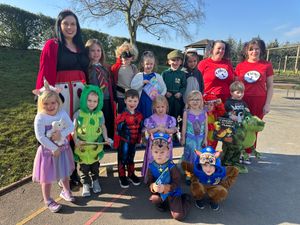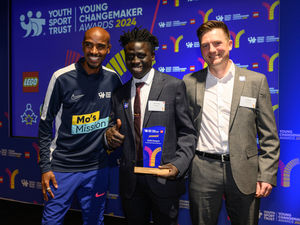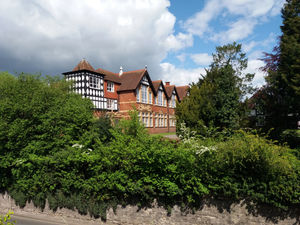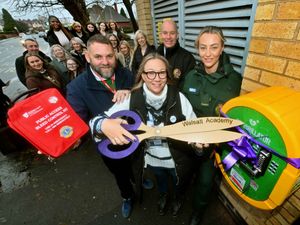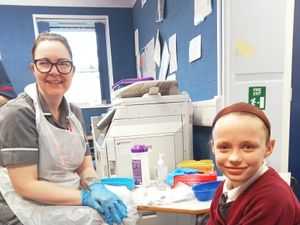High-flying pupils in glider design contest at RAF Cosford - with pictures
A new type of aircraft could be seen jetting around RAF Cosford's hangar one during a national competition – all made of cardboard, sticky tack and tape.
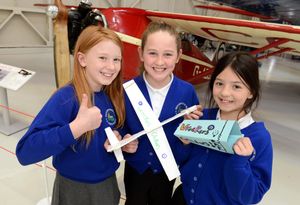
More than 100 students from all over the country attended the museum to take part in the regional finals of the Fly to the Line Glider Challenge 2019.
Aimed at engaging students in aspects of science, technology, engineering and maths (STEM), Wednesday's competition saw teams of four design the perfect model aircraft to soar among the RAF planes and engines on display inside the museum's hangar.
Having been whittled down from 220 schools to just 28, each team's model was launched from a runway, with prizes for the furthest flight and the best design innovation.
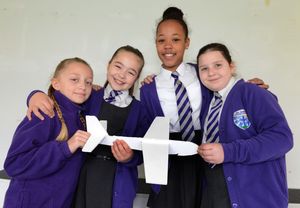
Among the schools taking part was Wrockwardine Wood School, from Telford.
Rita Landa, teaching assistant at the school, said: "This has given the pupils a really good chance at getting to grips with designing models and learning how they work in relation to real planes.
"They've told me how much fun they've had as well as learning some of the science behind how a plane actually flies.
Design
"By making little tweaks to their design and seeing the effects they've been able to have the science of it put into context which I think really helps."
After a day of designing, trialling and flying the model planes, Christ The King School, from Salford took home first place, with Corby Primary Academy winning the Best Design Innovation award.
Julie Brierley, head of learning at RAF Cosford, said: "We've had some amazing designs and the children have been incredibly competitive which is great to see.
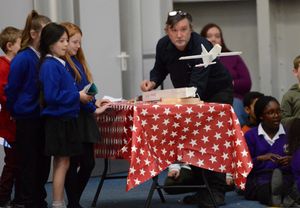
"The aim is to engage young people and encourage them to pursue engineering further on down the line.
"They've been able to gain some great skills such as measuring and cutting a model to specifications and learning about the theory of flight, which has tapped into their maths, physics and science skills.
"From the very start of this event with more than 200 schools, it's covered a broad range of abilities and really has got their minds working on producing a model using real life engineering techniques on a smaller, model aircraft scale."

